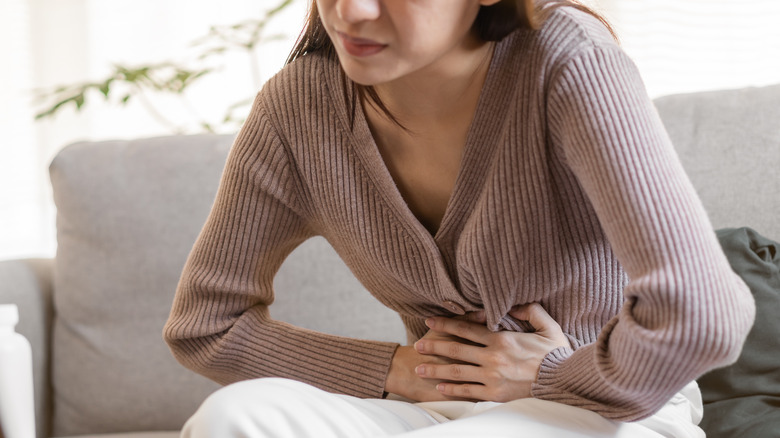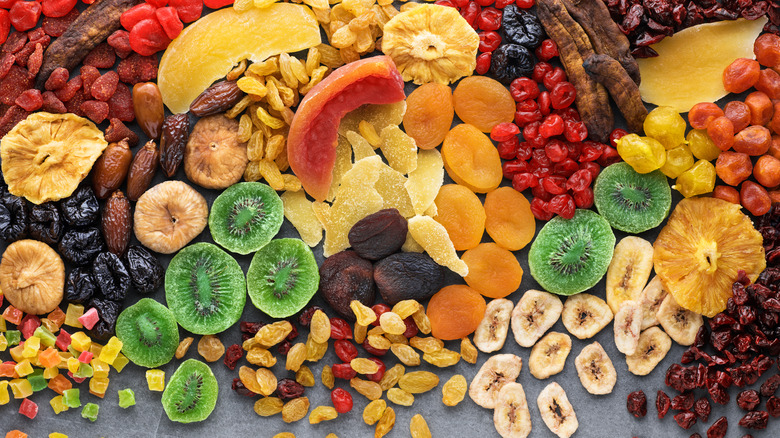New Food Studies Suggest A Popular Healthy Snack Could Make You Sick
Fruits are an essential part of a healthy diet. They contain large amounts of fiber, as well as important vitamins, minerals, and antioxidants, such as potassium, folate, and Vitamin C, according to Healthline. Diets that are high in fruit have been linked to a number of improved health outcomes, including lowered risk of cancer, heart disease, and diabetes, according to Medical News Today. They can also be a great source of hydration, which can be especially important in the hot summer months. However, not all fruits are created equal.
In general, eating ripe, fresh fruits will deliver the most health benefits. While dried fruit may be popular, since it has a longer shelf life and is an easy convenient snack to take on the go, it doesn't always measure up to its fresher counterpart. Dried fruits do contain healthy vitamins and fiber, but most of them also contain quite a bit of added sugar. Because dried fruit is concentrated and doesn't contain the same high water content as fresh fruit, it also tends to be much easier to overeat dried fruit, according to Web MD. However, this is not the only thing to be wary of when it comes to eating dried fruit.
Dried fruit may contain Salmonella
Several recent studies supported by the Institute for the Advancement of Food and Nutrition Sciences have suggested that low-moisture foods, such as dried fruit, may contain salmonella, Eat This Not That reports. Salmonella is a type of bacteria that can cause an infection in humans, leading to fever, diarrhea, and stomach cramps, according to the CDC. Recent research has shown that traces of the Salmonella pathogen has been found on dried fruits like raisins, dried strawberries, and apples, as well as other low-moisture foods like pistachios. "Salmonella cross-contamination in low-moisture foods has been traced to factors such as poor sanitation practices, poor equipment design, and poor ingredient control," stated one study published in The Journal of Food Protection, adding that "Salmonella can survive for long periods in low-moisture food products."
However, if you are a fan of dried fruit, there may be some good news. There are some promising decontamination techniques on the horizon, including using UV radiation, ethanol sanitizer, ozone, or peroxide that may be able to reduce the risk of contracting food-borne infections like salmonella from low-moisture foods. But while these may have promising implications for the future, the best way to avoid the risk currently might be to replace that bag of dried fruit with a fresh apple.

